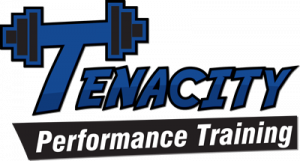Last July, I had the opportunity to attend the National Strength and Conditioning Association (NSCA) 36th Annual National Conference in Las Vegas, NV. While there were many different topics presented and discussed throughout this 4-day conference pertaining to athletic performance and general fitness, I made a particular effort in trying to attend sessions discussing the implications of protein supplementation since many of clients inquire about whether or not they should begin supplementing their diets with the various protein shakes out on the market.
In short, yes, we should all be eating more protein, especially those of us who are physically active. The more physically active we are the higher our protein needs will be for sufficient muscle protein synthesis. Current RDA recommendations for protein consumption are 0.8g/kg of body weight. Unfortunately, this recommendation may not be sufficient for physically active people, especially athletes and older people. For example, I weigh about 170 lbs or approximately 77 kg. My daily RDA protein recommendation would be about 62 g . Of course, I am much more physically active than the typical American, so my protein needs are much higher. Generally, active individuals should be consuming about 1.5 g – 2.0 g/kg/day. In my case, I should be consuming between 115 g – 154 g of protein per day. Obviously, you wouldn’t consume that much protein in one sitting. Studies have shown that your body will absorb protein effectively if you take at least 20 g of protein, but no more than 40 g of protein per meal/snack. Again, using myself as an example, if I eat meals/snacks 6 times a day I would need to consume about 20 g – 25 g of protein per meal/snack.
Why do we want to consume enough protein? We need protein to help rebuild our muscles, especially after a tough workout. We can either be in negative protein balance or positive protein balance. We put ourselves in negative protein balance when we are at rest and not eat enough protein and when we exercise and not eat enough protein. We can put ourselves in positive protein balance if we rest and consume protein and if we exercise and consume protein. Of course, we want to have a positive protein balance as much as possible. If we constantly exercise and deprive our bodies of protein, our exercise and athletic performance will suffer and we may even see an increase in body fat percentage due to lean muscle tissue loss and none of us want either scenario to happen. So, do yourself a favor and make sure you’re taking in enough protein and spreading out your intake throughout the day as opposed to consuming large amounts of protein in one or two doses.
Next month, we’ll discuss the different sources of protein that are available and which ones give you the best bang for your buck.
